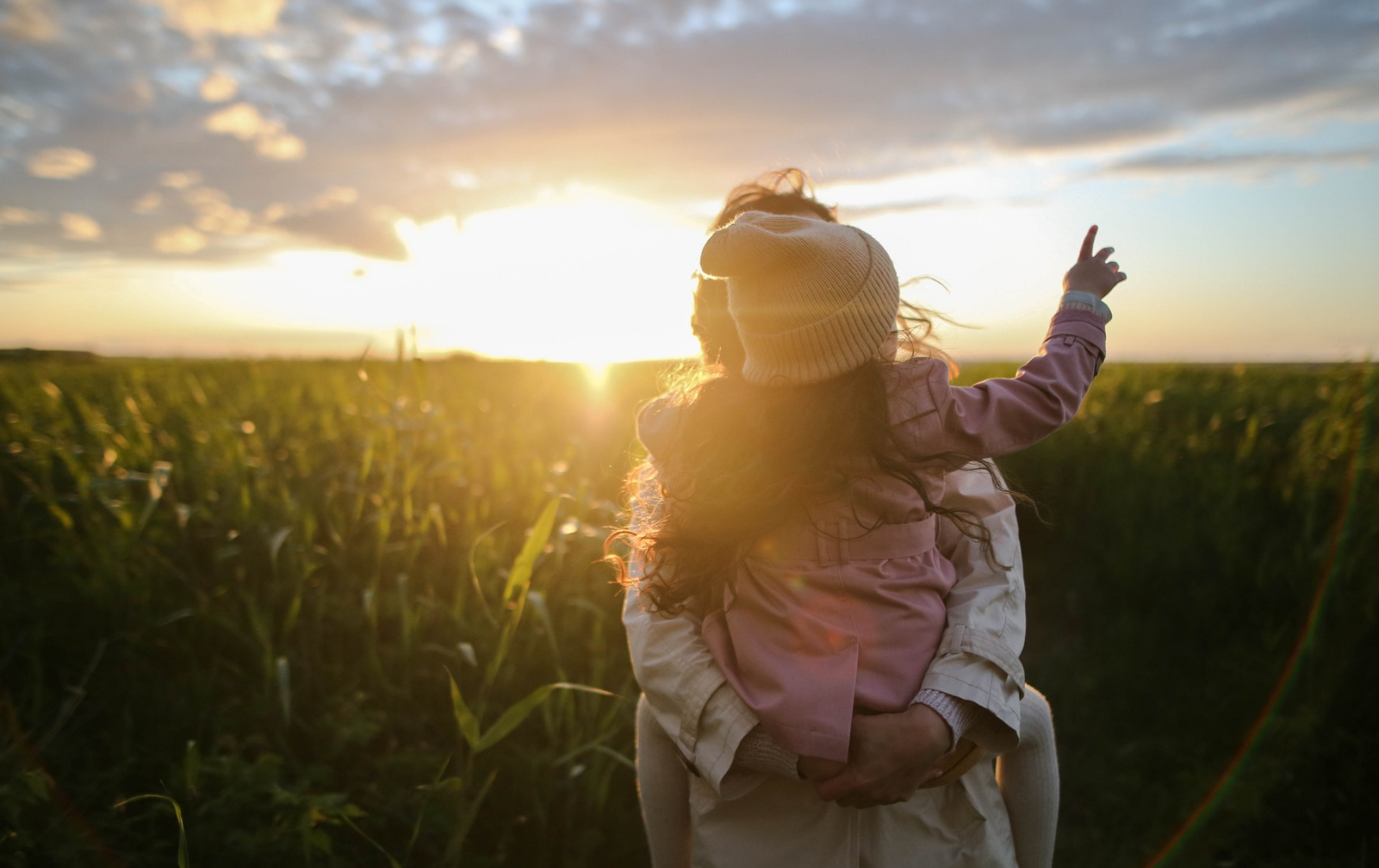Domestic violence against children
Children are exposed to varying types of domestic violence and they can have a wide range of serious consequences. But what exactly constitutes domestic violence against children? And what can be done if children are affected by domestic violence?
What constitutes domestic violence against children?
Children can be affected by various types of domestic violence, whether directly or indirectly.
Types of direct violence include physical violence such as slaps or beatings, psychological violence such as insults, threats or humiliation, and sexualised violence in the form of sexual acts performed in the presence of a child or sexual exploitation. Click here to find out more about the varying types of domestic violence.
Another type of direct violence is physical or emotional neglect, if a child’s basic needs for food, care or affection are not met.
There are also several types of indirect violence in which children are beaten together with their parent or if they witness violence between their parents or guardians.
To find additional information and materials for specialists and parents on the subject of domestic violence against children, go to the Kinderschutz Schweiz website.
What to do in the case of domestic violence against children
If your children experience domestic violence
- If your children feel threatened or if they are in acute danger, call the police (tel. 117). It’s the police’s job to provide assistance and protection.
- Seek out professional support:
- Contact a women’s shelter in your region if you need protection, a place to stay and counselling. Click here for a list of all women’s shelters. The Swiss Civil Code stipulates that in the event of domestic violence, you have the right and obligation to move your children to a safe place and separate them temporarily from the other parent.
- Contact a victim counselling centre in your region if you and/or your children need counselling. Click here for a list of all victim counselling centres.
- Talk to your children about what they experienced. Make it clear to them that the violence is not their fault.
If you know children who are affected by domestic violence
- If they are in acute danger, notify the police (tel. 117).
- Take allegations, suspicions, observations and reports of domestic violence seriously.
- Listen to them and offer your support, but also accept that children might not want to or be capable of opening up to you. They have good reasons; e.g. they love their parents, have conflicting loyalties due to their dependency on their parents, they are afraid of the consequences, cannot make sense of the violence, have been warned not to talk about the violence or because the violence is trivialised and sold to them as ‘their little secret’.
- Contact a specialist support centre to find out which support services are available. Thus, the children affected and their families can be offered the support they need. Click here for a list of all victim counselling centres.
What are the consequences of domestic violence on children?
Regardless of whether they are exposed to direct or indirect types of violence, children are always affected by the domestic violence they experience. Domestic violence is a heavy burden in terms of a child’s development.
The repercussions of domestic violence are individual and depend on various factors, including:
- frequency, intensity and severity of the violence
- the child’s age and gender
- any other previous and on-going burdens
- a child’s own resources, protective factors and coping strategies
- social and emotional support a child receives from their environment (from their mother, siblings, school, leisure, etc.)
The consequences of domestic violence can manifest in very different ways:
- Physical effects: visible and invisible injuries, eating or sleeping disorders, headaches and stomach aches, bedwetting or other health problems caused by poor care and neglect
- Psychological and emotional effects: sadness, symptoms of depression, low self-esteem, anxiety, heightened aggression, suicidal thoughts and symptoms of post-traumatic stress disorder, such as flashbacks, nightmares and avoidance tactics
- Cognitive effects: reduced school performance, abrupt drop in performance, noticeable developmental delays, poor concentration and learning blocks and impairments
- Social effects: difficulty in establishing interpersonal relationships, problems in developing a suitable conflict management strategy, aggressive behaviour and a higher risk of a violent relationship as an adult (whether as victim or perpetrator)
- Domestic violence during adolescence can also lead to addiction (drugs or alcohol) and self-harm, including self-inflicted injuries or attempted suicide.
Is domestic violence against children punishable by law?
Domestic violence against children comprises many acts of violence that are prohibited by law. In addition to the violation or neglect of duty of care and upbringing, and the associated endangerment of physical or mental development, other criminal offences are possible. Click here to find out more about the legal situation in cases of domestic violence.
What does the child and adult protection authority (KESB) do in cases of domestic violence against children?
The child and adult protection authority (KESB) takes action only if it receives a report of child endangerment. This can happen after police deployments involving minors. If the KESB receives a child endangerment report, this rarely results in the removal of the child from the home. Instead, the focus is on providing the minor with the necessary support. The KESB is responsible for clarifying the situation and taking any steps necessary to protect the child. Victim counselling centres and women’s shelters also offer support specifically for children and adolescents and help them in contact with the KESB.






